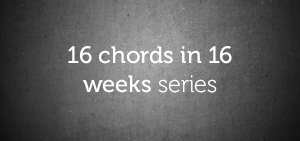Today’s lesson is on the backdoor that leads you home in music.
Now, depending on the kind of house you’re living in, there are two exits; the front door and the back door and I know you’re wondering what the front door and back door has to do with music.
But if you stick with me for the next seven minutes or so, I’ll show you what the backdoor in music is and how you can go home through this back door.
Are you ready? Alright, let’s get this party started.
The Front Door, The Backdoor, And What It Has To Do With Music
When I was a kid, I grew up in a neighborhood where most houses have a backdoor and I’m going to tell you a short story:
Growing up was fun in the neighborhood where we lived because there were a lot of kids to play with every evening (precisely around 5:00 pm) and you can actually get so dirty in the sand, and get back home later than 7 pm after the fun has climaxed and everyone is running back home.
On the other hand, a lot of parents don’t like this idea of kids in the neighborhood coming together to get dirty in the sand; neither do they like the idea of kids coming home later than 7 pm and for your information, a lot of parents come home a little later than 6 pm or much earlier than 7 pm.
So, if you get carried away with the fun and are unable to go back home before your parents are back home, you’re already getting into trouble and I’ll be honest; the fun heightens the later it gets and usually climaxes when it’s really late.
For a lot of people (like me), going home after the day’s fun is difficult and if you have to pass through the front door, with all the dirt from the sand, and without a reasonable explanation why you stayed out late, you’ll be disciplined.
So, it’s usually better off to sneak in through the back door (unnoticed) and maybe do the house chores that are assigned to you before you get into more trouble.
Story of my life!
Going home through the back door saved me a lot of times when I was either home late or looking very dirty from playing in the sand and if you’re an 80s or early 90s baby that grew up in a neighborhood similar to ours, you know the struggle. ;)
But if you live in a house without a back door and the only way to go in is through the front door, it’s usually a struggle and you’d better have a reasonable explanation to give or you face the disciplinary measures put in place by your parents.
So, here’s the thing:
After playing until you’re either dirty or it’s dark, never forget that there’s a backdoor that leads you home.
This was like an unwritten rule in the neighborhood for all of us, save for folks who are not fortunate enough to have a back door.
“Now, How Does This Relate To Music?”
In music, the concept of the back door applies and I’ll be showing you how that works in this segment.
But before we talk about the front and back doors, let’s look at the home.
The Home Base: The Tonic Chord
In the major key, the chord of the first tone of the scale (aka – “the 1-chord”) is the most important chord in the key and this is because it has this feeling of repose that is similar to being at home.
So, the 1-chord is the home of the key and playing the 1-chord is similar to being at home and in the key of C major:
…playing the 1-chord (the C major chord):
…is the home.
Attention: Keep in mind that the 1-chord is also known as the tonic chord but that’s a technical name.
Now, our home in music (the 1-chord):
…has the front door and the back door and we’ll be covering both doors shortly.
The Front Door: The Dominant Chord
The front door that leads to the home in the major key is the 5-chord which is known to music scholars as the dominant chord and in the key of C major:
…the 5-chord is the G dominant seventh chord:
Once you get to the front door (the 5-chord):
…it takes you into the home (the 1-chord):
…and this is how we go back home most of the time in music — we use the front door and it takes us right into the home.
A lot of songs end this way; with the movement of the 5-chord to the 1-chord and that’s very traditional.
But you see, there’s a back door and it leads right into the home as well and a vast majority of musicians either are unaware of this door or they use it without knowing it’s a back door.
The Back Door: The Backdoor Dominant Chord
There’s another dominant chord that takes you back home but through the back door and that’s why it’s called the backdoor dominant chord and in the major key, it’s played off the flat-seventh tone (b7) and in the key of C major:
..the b7 is Bb:
Attention: Lowering the seventh tone of the scale by a half-step produces the b7 tone and in the key of C major where you have B as the seventh tone, lowering B by a half-step (to Bb) produces the b7 tone.
Our backdoor dominant chord for this lesson is the Bb dom9 chord:
…and it literally looks like we’re playing the F min6 chord:
…over Bb on the bass:
This is the back door (the b7-chord):
…that takes us home (to the 1-chord):
…and if you’re like me or any of the kids in my neighborhood and you have a reason why you need to use the back door to get back home, you have the Bb dom9 chord:
…in the key of C major:
…to get you home (to the 1-chord):
Final Words
In a subsequent lesson, I’ll break down the relationship between the backdoor dominant chord and the tonic chord and why the former leads to the latter.
In addition to that, I’ll also take you by the hand and show you other backdoor dominant chords that you can go home with in the key of C major.
But for now, feel free to go home (the 1-chord):
…through the back door (the backdoor dominant chord):
…if you don’t want to go home through the front door.
See you in the next lesson.
Chuku Onyemachi
Latest posts by Chuku Onyemachi (see all)
- The Formation Of Diminished Seventh Chords Used To Be Challenging Until I Did This
- How To Form Seventh Chords In Two Shakes Of A Dog’s Tail Using Third Intervals And The Circle Of Fifths Chart
- I Played The 13sus4 Chord And This Happened…
- How To Build Seventh Chords Like An Architect Using “Foundation And Structure” Concept
- This 4-Week Plan Will Help You Master All The Major Scales







Comments on this entry are closed.